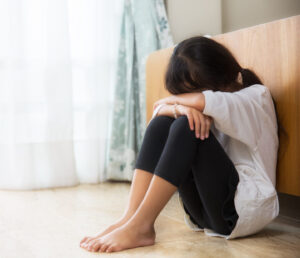Massachusetts poised to teach gender ideology to preschoolers
Massachusetts Gov. Maura Healy and state education officials proposed new physical and sex education guidelines for public schools – which include teaching gender ideology to preschoolers.
The…

Massachusetts Gov. Maura Healy and state education officials proposed new physical and sex education guidelines for public schools – which include teaching gender ideology to preschoolers.
The curriculum, which was last updated in 1999, will now be “LGBTQ+ inclusive, medically accurate and developmentally- and age-appropriate,” according to the governor’s press release.
“As the proud daughter of a school nurse and health and sex education teacher, I believe strongly that all students deserve inclusive, medically accurate, and age-appropriate health guidelines,” Healy said.
Starting as early as preK-2nd grade, the new guidelines teach gender and social ideology to students.
They recommend children as young as 4 or 5 begin discussing gender stereotypes, prejudice, discrimination, inequality, diversity and non-traditional family structures.
They also recommend that 8-10-year-olds learn the differences between biological sex, gender identity, and sexual orientation and be able to define sexual intercourse and “the range of ways pregnancy can occur.”
Later grades discuss sexually transmitted diseases, sexual violence, and encourage students to consider their personal beliefs regarding sexual activity.
In addition to being endorsed by the governor and state congressmen, the new curriculum was also approved by LGBT advocacy groups, teachers’ unions and Planned Parenthood.
However, not everyone thought the guidelines were as “age-appropriate” as advertised.
“I couldn’t help but notice sex, sexuality and gender was more a teaching narrative than nutrition and physical education and mental health,” Katie Ferreira-Aubin, a local school committee member, told the Massachusetts’s Board of Elementary and Secondary Education at a public meeting on Tuesday.
“Why do we need to talk about children’s sexual preferences?” Ferreria-Aubin continued. “Why are we talking to 7- to 10-year-olds about their sexual preferences? This is adult topics.”
Others argued the new policy would increase the number of families opting their children out of public sex education lessons – or leaving the public system altogether.
“This framework also has a heavy emphasis on gender ideology, even in the youngest grades,” said Michael King, director of community alliances for the Massachusetts Family Institute.
“If this framework is passed and implemented, it will only increase the growing opt-out of sex ed movement across the state … and the mass exodus of families from Massachusetts public schools,” King concluded.
Although sex ed advocates argue such lessons are appropriate for young children – even kindergarteners – and claim sex ed reduces teenage pregnancy and STD rates, other school officials have different experiences.
Audrey Werner, a nurse who spent 14 years working for a county health department, nine years treating patients with HIV and STDs, and 5 years as a school nurse, told Oklahoma lawmakers the real effects of sex education.
“For the five years I taught sex ed in the schools, I believed what I was told in my training, that I would decrease the teen pregnancy and the STD rates,” Werner said. “However, when I moved to the STD/HIV clinic, I saw the opposite was true. More children were becoming sexually active and the rape of women and children was exploding.”
Research shows the number of reported rape cases has increased over the past 30 years, and most victims of sexual violence are under the age of 20.
“For the past 50, 60 years, we have treated children as sexual from birth,” Werner continued, “which has contributed to the public-health crisis we have now today.”
Massachusetts’ state board voted to have a public comment period for the new guidelines.
Comments can be submitted by mail or email to the Department of Elementary and Secondary Education.



